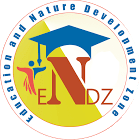International Day of Persons with Disabilities (IDPD) is observed annually on December 3. This day was proclaimed by the United Nations in 1992 to promote the rights and well-being of persons with disabilities in all areas of society and development. The observance aims to raise awareness about the challenges that people with disabilities face, as well as to highlight the importance of inclusivity and accessibility in all aspects of life.

Key Goals of IDPD:
Promote Awareness:
Increase public awareness about disability issues and the importance of respecting the rights and dignity of persons with disabilities.
Advocate for Inclusion:
Encourage governments, communities, and organizations to implement policies and practices that ensure equal opportunities and participation for persons with disabilities.
Celebrate Achievements:
Recognize the achievements and contributions of people with disabilities, showing that they can participate in and contribute to society in meaningful ways.

Disability Rights:
Advocate for the full implementation of international agreements like the UN Convention on the Rights of Persons with Disabilities (CRPD), which protects the rights and freedoms of persons with disabilities.
Themes:
Each year, the United Nations assigns a specific theme to International Day of Persons with Disabilities. Themes have often focused on topics such as:
Accessibility
Inclusion in employment
Empowering individuals with disabilities in the context of the sustainable development goals (SDGs)
Celebrating diversity and ensuring equal opportunities for all
For instance:
2023: “Transformative Solutions for Inclusive Development: The Role of Innovation in Fuelling an Accessible and Equitable World.”
2022: “Removing barriers to create an inclusive and accessible society for all.”
Celebrations and Activities:
Awareness Campaigns: Events, social media campaigns, and discussions are held to raise awareness about the issues that people with disabilities face.
Conferences and Panels: Governments, organizations, and advocacy groups often host events to discuss policy changes, advancements in technology, or legal reforms that can improve the lives of people with disabilities.
Community and Government Actions: Local governments and organizations may implement new initiatives or highlight ongoing efforts to improve accessibility, such as ramps, elevators, and accessible public transportation.
Celebrations and Awards: Some communities hold celebrations to recognize the contributions of people with disabilities in fields like education, sports, arts, and business.
Why It Matters:
Disability and Inclusion: Over 1 billion people worldwide (about 15% of the global population) live with some form of disability. Unfortunately, many still face discrimination, lack of access to essential services, or barriers in their communities.
Human Rights: People with disabilities have the same human rights as everyone else, yet they often encounter prejudice or obstacles that prevent them from fully participating in society. IDPD serves as a reminder to both governments and individuals to uphold the rights of persons with disabilities.
IDPD is an important day to reflect on the progress made and the work still needed to create a more inclusive, accessible, and equitable world for people with disabilities.
വികലാംഗരുടെ അന്താരാഷ്ട്ര ദിനം #Persons with Disabilitiesact# problem manushyar#anga vaikalyam#kayi ellathavar#maadyam#vikalaangar#vikalangar#dsembar 3#december 3# 3#asukam#orma peduthal#disability day#
